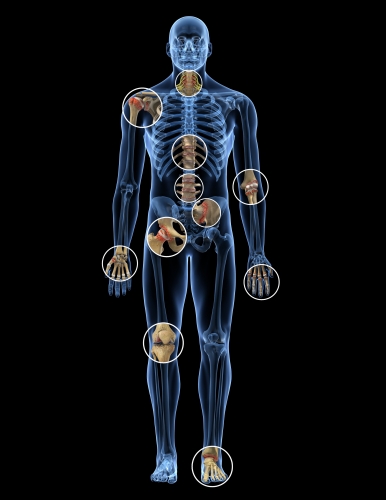What is Pain
Pain is an unpleasant feeling that lets you know that something may be wrong. It is one of the body's warning signals that indicates a problem that needs attention. Pain starts in receptor nerve cells located beneath the skin and in organs throughout the body. When there is an illness, injury, or other type of problem, these receptor cells send messages along nerve pathways to the spinal cord, which then carries the message to the brain. Pain medications work by reducing or blocking these messages before they reach the brain for perception.
WHAT IS CHRONIC PAIN?
Chronic pain is long standing pain that persists beyond the usual recovery period or occurs along with a chronic health condition, such as arthritis. If the pain of this injury or illness lasts longer than six months, it’s then considered chronic pain. Chronic pain may be intermittent or continuous. It may affect people to the point that they cannot work, eat properly, participate in physical activity, or enjoy life.
What is a chronic pain syndrome?
Your doctor has told you that you have a chronic pain syndrome. What does it mean?
 In most cases, chronic pain starts with an acute injury or illness that develops pain that lasts over a period of time. Sometimes, chronic pain subsequently causes complications. These complications, in turn, can make the pain worse. A chronic pain syndrome is the combination of chronic pain and the secondary complications that are making the original pain worse.
In most cases, chronic pain starts with an acute injury or illness that develops pain that lasts over a period of time. Sometimes, chronic pain subsequently causes complications. These complications, in turn, can make the pain worse. A chronic pain syndrome is the combination of chronic pain and the secondary complications that are making the original pain worse.
Chronic pain syndromes develop in what we call a vicious cycle. A vicious cycle is the cycle of pain causing pain: chronic pain that causes secondary complications, which subsequently make the original chronic pain worse.
What are these secondary complications? Chronic pain can lead to some common problems over time. For example, many people tend to have trouble sleeping because of pain. After a while, they are so tired and their patience has worn so thin that everything starts bugging them. They also find that coping with chronic pain gets harder and harder too. Some people stop working. With the job loss, they might come to experience financial problems. The stress of these problems keeps them up at night. Thinking too much in the middle of the night can make the original sleeping problem even worse. It can be hard to shut off the thinking even in the middle day. Chronic pain can also affect the roles people have in the family. They miss out on children’s activities, family functions, and parties with friends. As a result, many people struggle with guilt. Guilt isn’t the only emotion that is common to living with chronic pain. Patients tend to report some combination of fear, irritability, anxiety and depression. Patients also tend to express that they have lost their sense of direction to life. They are stuck. These problems are all common when living with chronic pain.
 These problems cause stress. They are called stressors, which means that they are problems that cause stress. These stressors can make pain worse because stress affects the nervous system. It makes the nervous system more reactive and you become ‘nervous.’ Now, pain is also a nerve related problem. Whatever its initial cause, pain travels along the nervous system to the brain, which is also part of the nervous system. Once reaching the brain, it registers as pain. When stress affects the nervous system, making it more reactive, the pain signals reach the brain in an amplified way. So, stress leads you to have more pain.
These problems cause stress. They are called stressors, which means that they are problems that cause stress. These stressors can make pain worse because stress affects the nervous system. It makes the nervous system more reactive and you become ‘nervous.’ Now, pain is also a nerve related problem. Whatever its initial cause, pain travels along the nervous system to the brain, which is also part of the nervous system. Once reaching the brain, it registers as pain. When stress affects the nervous system, making it more reactive, the pain signals reach the brain in an amplified way. So, stress leads you to have more pain.
The vicious cycles of pain become clear. Chronic pain causes stressful problems, which, in turn, cause stress that makes the pain worse. This combination of chronic pain and the resultant problems that make pain worse is what we call a chronic pain syndrome.
Chronic pain is considered a major medical condition that can and should be treated. It involves all aspects of a person's life. The most effective treatment includes not only treatment focused to reduce pain but more importantly, treatment to improve function. A multidisciplinary approach to pain management can often provide the needed care to help manage the pain and increase life pursuits. CareFirst’s pain management team works together to provide each patient with the specialized care and support they need.



